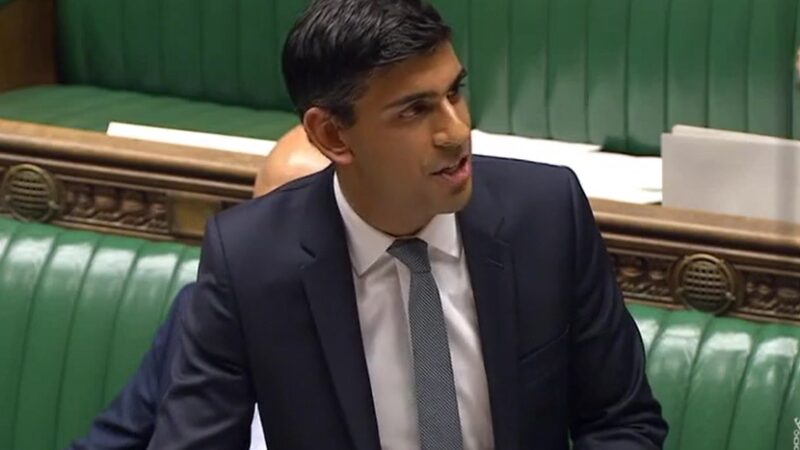It's what they do in many European countries.

Two weeks on from the Chancellor’s ‘plan for jobs’ and opinion has settled. Rishi Sunak’s second phase of post-Covid support has fallen flat.
The £1,000 job retention bonus is unlikely to persuade businesses to bring back employees they weren’t going to bring back anyway, and the targeted, sector-specific extension of the furlough scheme many called for was nowhere to be seen.
This mixed reaction comes in contrast to the near-universal praise for Sunak’s initial response to the Covid-19 crisis back in March – namely, for the coronavirus job retention scheme (CJRS, or the furlough scheme) and the self-employment income support scheme (SEISS).
If the government is to stand a chance in the fight against looming mass unemployment, it must look to replicate the scale and creativity of that initial response. To that end, it must reintroduce a critical ingredient present in March but missing this summer: a robust role for ‘social partnership’ – the involvement of trade unions and employers in crafting policy.
The approach is not as radical or ‘left-wing’ as may be assumed. It is prevalent across countries in Europe and beyond. Tripartite agreements – between business, unions, and government – underpinned Covid-19 labour market measures in Belgium, Denmark, Estonia, Finland, Iceland, South Korea, and Spain.
In many of these countries and others, the practice of including the social partners in policymaking is embedded and systematic – for example, in Germany, South Korea and Brazil, unions and employers are formally part of the agencies designing and implementing employment policy.
Social partnerships are advocated by authoritative global institutions too. The International Labour Organisation, a UN agency, has argued that dialogue between the social partners and government can help build consensus in times of economic upheaval and transition.
With automation accelerating, we are likely to see such upheaval and transition continue long after the pandemic. The upcoming report of the commission on workers and technology – a two-year policy inquiry established by the Fabian Society and Community trade union, and chaired by Yvette Cooper MP – will set out the case for more involvement of unions and employers in this context.
The Chancellor is under no illusion about the scale of the economic turbulence the country faces. The economy shrunk by a fifth in the three months up to May this year. And although the furlough scheme means we haven’t yet seen huge numbers of people losing their jobs, the OBR’s central forecast for the coming months and years makes for grim reading.
He faces two challenges from here. First, to counter the expected tide of unemployment, and second, to put policy in place that recognises the world of work has changed irrevocably and will continue to do so.
Government policymaking must reflect these two strands of reality if it is to adequately shore up the economy for the short and long term. The Chancellor has another chance to show he gets this with the third phase of his economic response in the autumn.
In his speeches announcing the CJRS and the SEISS the Chancellor stressed that, in formulating the measures, he worked closely with those who best understand the world of work: trade unions and employers.
He made sure we all knew it too – the Trades Union Congress, the Confederation of British Industry and the Federation of Small Businesses were referenced in his statements and in subsequent media appearances. He knew it was both the right thing to do and would give the public assurance.
So, when no such reference was made in the chancellor’s summer statement this month, the voice of workers was glaringly absent. While stakeholders including the TUC were consulted, it is clear from the meagre content of the package and the TUC’s response that there was a departure from any effort to design policy in meaningful partnership.
The government must recognise the critical role of trade union and employer organisations in designing schemes that genuinely address the challenges that workers and business face. And not just in the post-Covid economy. Bringing the voices of workers and businesses back into the process should remain the approach to making big policy decisions on the economy and employment going forward into the 2020s.
Josh Abey is a Fabian researcher specialising in social partnerships and the voice of workers on board
To reach hundreds of thousands of new readers we need to grow our donor base substantially.
That's why in 2024, we are seeking to generate 150 additional regular donors to support Left Foot Forward's work.
We still need another 117 people to donate to hit the target. You can help. Donate today.



